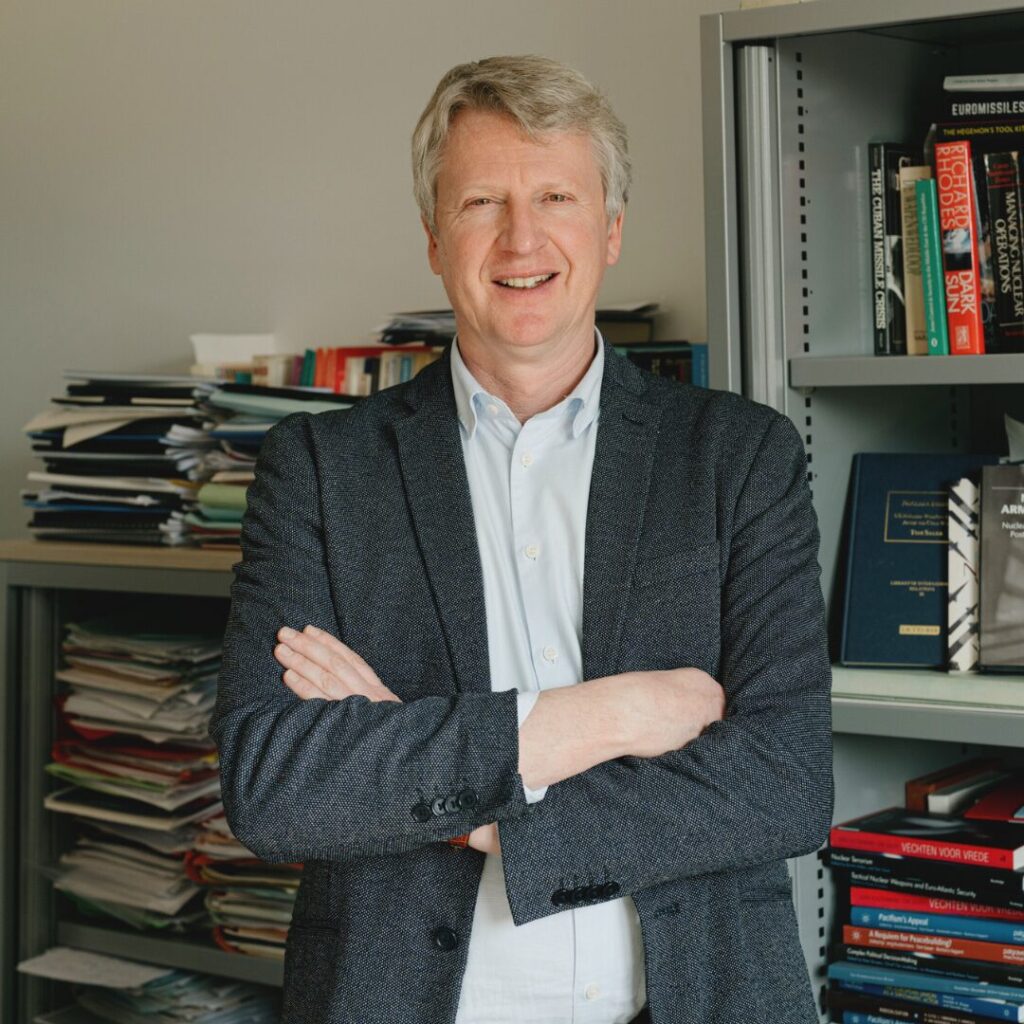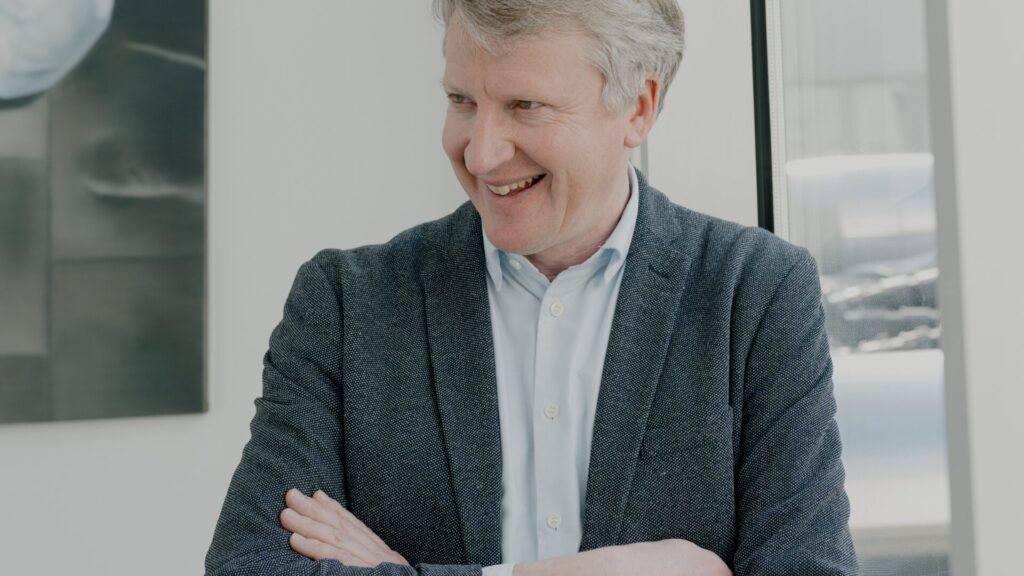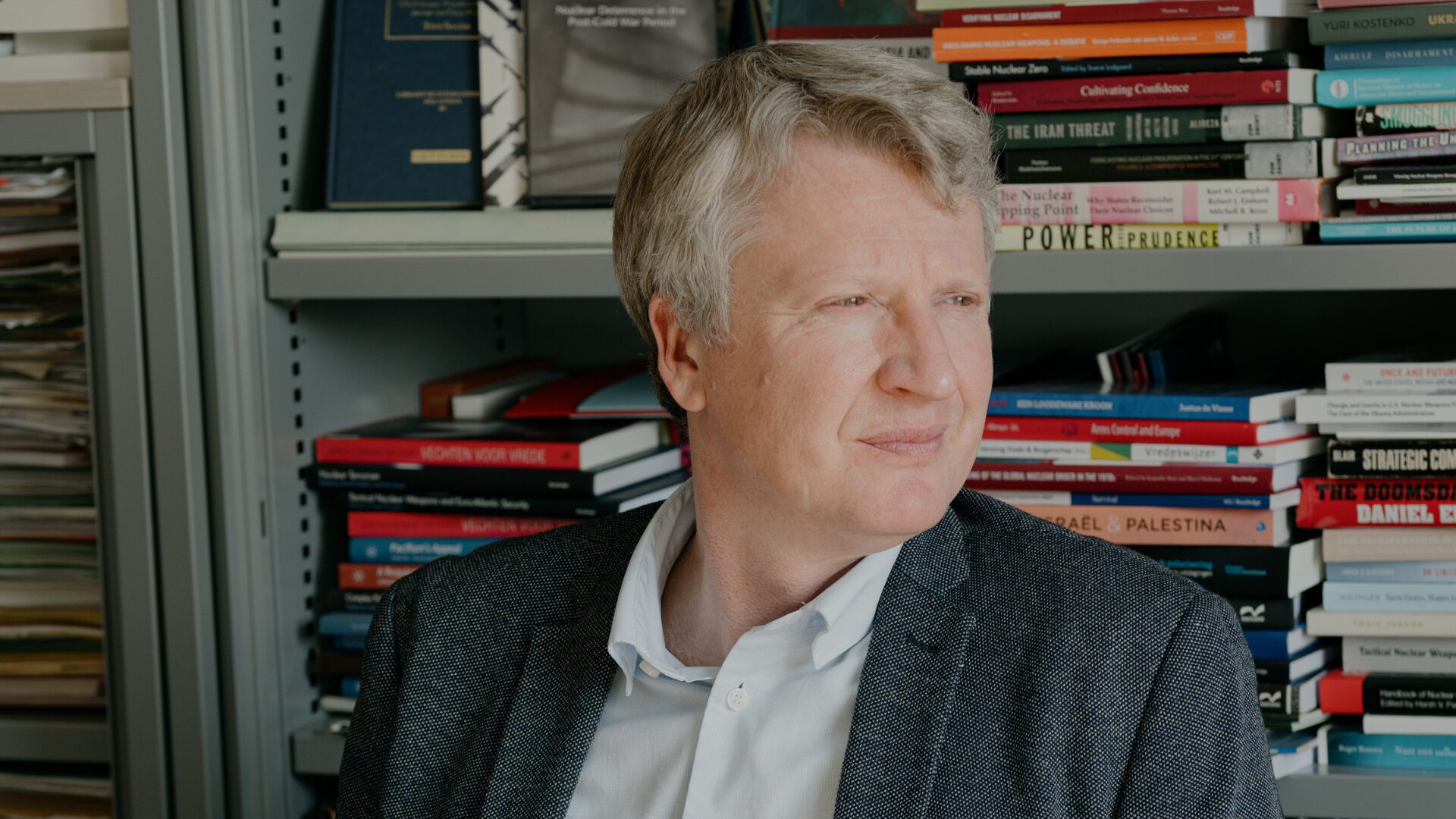In our country, professors and researchers have complete academic freedom, as shown in the Academic Freedom Index. This seems so self-explanatory that we sometimes forget how important it is. ‘As an academic, you have to have the freedom to challenge prevailing views,’ says Professor Tom Sauer of the Department of Political Science.
As a professor of International Politics, Tom Sauer regularly contributes to the public debate, in radio and TV interviews, opinion pieces and lectures, for instance. ‘I think it’s important to share my analyses with a broader audience. This would be impossible without academic freedom. We owe this freedom to our democracy, but also to our university system. This doesn’t only allow us to express our opinions, but also encourages us to. For example, as academics we have the freedom to challenge prevailing views, even if our opinion isn’t gratefully accepted. That’s very important,’ says Tom Sauer.
Academic freedom means academics are free to conduct their research, education and social services as they please. For one thing, they’re free to choose their own research themes and methodologies, and also enjoy great autonomy when it comes to education. This may seem like a matter of course, but it’s not. ‘We are totally free to determine the content of existing programme components. This is different in, say, the Netherlands, where that content is more set in stone,’ says Tom Sauer.

“Less popular opinions often find their way to radio and television with difficulty or not at all. This is a pity, and not without consequences. You always see the same opinions being rehashed. This creates a pensée unique.“
– Tom Sauer
War in Ukraine
Of course, our university does expect its staff to combine that academic freedom with scientific integrity. For example, if an academic expresses an opinion within the public debate, it must be supported by sound scientific research. Professor Sauer: ‘My views on the war between Russia and Ukraine, for example, challenge the dominant war narrative. But that opinion is based on my knowledge and research on international politics, including with specific regard to that region.’
Less popular opinions often find their way to radio and television with difficulty or not at all. This is a pity, and not without consequences, according to Tom Sauer. ‘You always see the same opinions being rehashed. This creates a pensée unique. This was very clear during the COVID pandemic. Anyone who had a less common view on how to tackle the crisis at the time – to be clear, I had no problem with vaccinations – was not given a voice or was cut down during public appearances. People with that same opinion retreated into social bubbles and, over time, started to believe in conspiracy theories. This shows the importance of giving all opinions a place in the public debate.’
Called to account
According to the Academic Freedom Index, there is complete academic freedom in Belgium. Is this in line with Professor Sauers experiences? ‘Mostly, yes,’ he says. ‘I’ve only had a few negative experiences, for instance back when I was an assistant at a different Flemish university. I had written an opinion piece and the next day I was called to account by the vice-rector. That’s not how it should be. An assistant shouldn’t be pressured from a position of power.’
Our university highly values academic freedom, he continues. ‘To my mind, UAntwerp is the most pluralistic university in Flanders. For one thing, this is illustrated by how it appoints people: based on objective criteria, such as the number and quality of publications. This wasn’t always the case, especially at other universities. It’s good that the days of nepotism are behind us.’

Pressure to perform
What about other factors that are part of your everyday reality if you have a research career, such as pressure to perform and administrative burden? Is a researcher completely free if they constantly feel the pressure to publish? Tom Sauer acknowledges this publication pressure influences they way we do research, without calling it an obstacle to academic freedom. ‘Of course it’s not a good thing, but in the end you yourself choose whether you want to be part of that rat race.’
The relentless search for funding could also be seen as a restriction of academic freedom, as it can influence the choice of research topics. ‘At the end of the day, it’s easier to acquire funding if you’re working on a project on, say, fighting poverty or gender than if you concern yourself with nuclear disarmament like I do,’ says Professor Sauer. ‘But even then, as a researcher you decide yourself if you want to go along with this. Do you choose topics that interest you or do you allow yourself to be caught up in that rat race? Personally, I’ve stopped doing the latter.’
If the system were changed in this respect, this could be the beginning of a new era. Tom Sauer: ‘Our new rector argues for basic funding for every researcher. There will always be an element of competition, but with such a system we’d have to spend a lot less time on research applications and we’d therefore be able to cover all topics. We’re not there yet, but I’m definitely looking forward to it.’
Everyone plays their role
Not all academics are equally focused on research. ‘That also characterises academic freedom: determining yourself to what extent you want to focus on research, education or social services. Some colleagues never appear in the media, which is fine. It’s actually good if we all play different roles,’ Tom Sauer feels.
Once again, the question is whether it’s a completely free choice, as not all efforts are rewarded equally. ‘Promotions are mainly based on the number of publications. One could argue that the level of social service provision should also be taken into account quantitatively, for example by counting the number of opinion pieces or media appearances,’ says Professor Sauer.
But in the end, he mainly wants to emphasise the positive. ‘It’s precisely because we have complete academic freedom in Belgium that the level of research and education at our universities is very high. If you’re free to pursue your interests as an academic, you’ll be more motivated and achieve better results. So we can consider ourselves lucky we have this system.’
This article aligns with the line of strength “Academic freedom based on scientific integrity”. The lines of strength are guidelines on how you can shape your work. Now it’s up to you to put the mission in motion.


